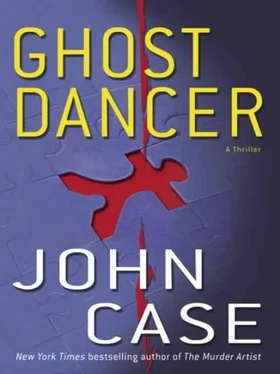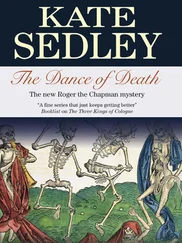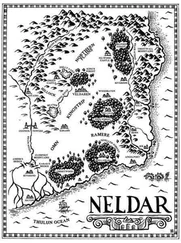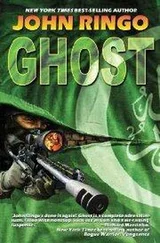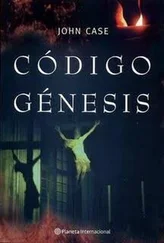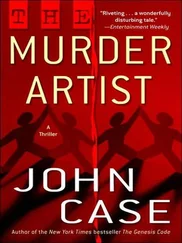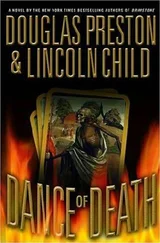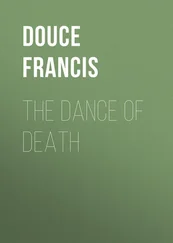“The Swiss.”
“No, they just waved me through.”
She nodded. “They’re like that,” she said. Then she cocked her head.
“You don’t look Irish.”
Wilson took a deep breath. It suddenly occurred to him that whatever this was about, it couldn’t have anything to do with Bobojon or Hakim. If it did, Homeland Security wouldn’t leave him alone with someone named Jill. Which meant, what? Why had they stopped him? There was no way for Wilson to know, but it might have been as simple as the fact that he’d paid cash for his ticket. Either that, or they’d integrated some of their databases, making data from the Bureau of Prisons accessible to customs and immigration officers. If so, it was no skin off his nose. He’d done his time, and he’d gone to Ireland. So what?
Relaxing, he turned on the charm. “Actually,” he said, “I do… look Irish, I mean.” Leaning over the table, he lapsed into a playful brogue. “As a matter of fact, darlin’, you’re looking at the map of Ireland.”
She tried not to smile. “I don’t think so,” she said.
“You’re not sayin’ you never heard of the ‘black Irish,’ are you?” Certainly, Wilson had. His college girlfriend had written a master’s thesis on the Celtic diaspora.
The Amirpashaie woman shrugged. “Well, I’ve heard the phrase, but-”
“You’re looking at a direct descendant of some poor castaway whose ship went down with the Spanish Armada. Some of the Spaniards washed up on the Emerald Isle. Married the local colleens. And why not? They were all Catholics. And this is the result: my smiling mug. Dark hair, dark eyes. Mediterranean skin. Y’know,” he said, “some people think the Melungeons are descendants of that same Iberian blood.”
“The Melungeons?”
“In Appalachia. Which is fascinating when you think about it,” Wilson said, “because they’ve done mitochondrial DNA studies and-”
“Mr. Wilson?”
“Yes?”
“This sounds like a lot of blarney.”
“Oh,” he said, faking a look of deep disappointment.
She smiled, and handed him his passport.
The hassle continued at Customs, but it was no big deal. An agent went through his suitcase with great deliberation, but there was nothing to find. Wilson had burned the d’Anconia passport in Zurich, and FedExed his stock certificates to Vegas, where he would pick them up in a day or two.
Once he had the shares in hand, he’d open a bank account in Reno. Then he’d use the shares as collateral for a loan. He could probably get 80 percent of their value, which would give him about three million dollars. The bank would hold the shares, but it wouldn’t sell them – which was good, because they wouldn’t show up on anyone’s radar.
Sitting in the Admirals Club, nursing a tumbler of Johnny Walker Black as he waited for his flight to Vegas to be called. Wilson thought about all that he’d been through, including the people he’d been through. Bobojon and Hakim, Zero and Khalid, the kid at the diamond mine. Life’s a bitch, he thought, and then they bury you.
LONDON | MARCH 23, 2005
Ray Kovalenko sat in his office in the American embassy on Grosvenor Square in a state of rapt horror, reading and rereading the CAT scan report. He’d arranged to get the scan three days after learning that his best friend, Andy, whose birthday was only two days after Kovalenko’s own, had been diagnosed with metastatic cancer. Liver, lungs, pancreas, colon. And Andy had felt fine! Jesus, your whole body could be going south and you wouldn’t even know until it was too late.
Even as Kovalenko commiserated with Andy, he was looking up the number of his Harley Street internist. He insisted on a scan despite the doctor’s opinion that a full body scan not only subjected the patient to unnecessary radiation, but often produced ambiguous results. False positives and the like, which could lead to unnecessary procedures.
Kovalenko’s follow-up appointment with the internist was not for a few days, but a copy of the report had arrived from the imaging center in the morning mail. He took one look at it, felt the color drain from his face to his shoes, and got on his cell phone to Harley Street.
“I’ve got calcified granulomas in my lungs!”
“Not to worry-”
“Not to worry?! What about this nodularity on my liver! Is that supposed to be good?”
“Well,” the internist said, “not ‘good,’ but-”
“And a lesion! I’ve got a lesion on my kidney!”
“Yes, well, it could be anything.”
“Anything?!”
“Or nothing. CAT scans are like that,” the internist told him. “They show everything and, most often, it doesn’t amount to much.”
Kovalenko’s stomach tightened into a ball. And stayed that way.
All day.
The FBI’s Legal Attaché program consists of fifty-three offices around the world, staffed by more than a hundred and fifty special agents, one of whom was Ray Kovalenko. Each Legat (or Lee-gats, as they were called) was part of the country team within the embassy.
Kovalenko’s most important mission was to work with the CIA and British intel agencies to “prevent, mitigate, and investigate terrorist attacks.”
The phone buzzed. And again. Reluctantly, Kovalenko put aside the CAT scan report ( mild atherosclerosis of the thoracic aorta! ) and picked up the telephone.
“Yes, Jean?” He’d asked her to hold his calls. “I hope this is important.”
“It’s Berlin. Mr. Spagnola. He said it was urgent.”
On top of his anxiety over the CAT scan, Kovalenko had a hangover, a nagging throb behind his eyes that the word “urgent” seemed to propel into a new pain level. And it was just a couple of glasses of red wine! He cleared his throat, pushed the button on the phone, and forced his voice into friendly mode. “Joey, heyyyy. What can I do you for?”
“Remember the guy the BfV took down?”
Kovalenko blinked. If he moved a certain way in his chair, he got a pain in his lower back. Probably the lesion.
Kovalenko remembered. Sighed. Bobojon Simoni. Who could have been a gold mine. And the Germans screwed it up. “What about him?”
“Turns out, Simoni was like a switchboard for one of the al-Qaeda groups, posting ciphered messages on eBay,” Spagnola explained. “One of their people needs a surveillance report on the White House? A wire transfer, or a recipe for ricin? All they had to do was check out the Korans from Akmed’s Books.”
“You’re kidding me.”
“No, I’m not. Anyway, I got half a dozen wire transfers in front of me. One of them’s on your watch.”
Kovalenko picked up a pen, and began to make notes. “Which one?”
“Looks like Mr. Simoni was feeding an account at the Cadogan Bank-”
“Cuh-dugg-in,” Kovalenko corrected.
“What?”
“It’s the Cuh- dugg -in Bank, not the Cad -aggin Bank. Cadogan was-”
Spagnola cut him off. “Whatever! It’s a bank on St. Helier – and don’t tell me it’s ‘Sont El-yeh,’ ’cause I don’t really give a shit! I got enough problems – I’m being sabotaged in my own house… by my own troops. Y’know what I mean?”
Kovalenko did not.
Spagnola took a deep breath. “St. Helier,” he said. “That’s Jersey, right?”
“Right.”
“Okay, so… surprise, surprise! No name on the account,” Spagnola continued. “All we got is a number. December 20 – twenty-five grand arrives. Via Bobojon Simoni, from an account associated with an offshoot of al-Qaeda.”
“Which one?”
“They call themselves the Coalition of the Oppressed of the Earth.”
Читать дальше
